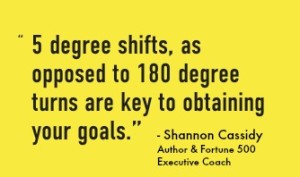For a long time, intelligence was divided into “book learning” and “street smarts.” People now come realize the importance of emotional intelligence. A person with emotional intelligence produces better work, knows how to relieve stress, manages emotions well, and forges stronger relationships. They also get along better with people and can work well as team members and leaders alternately. Whether your particular brand of intelligence involves book learning or street smarts, you can still develop emotional intelligence and become successful in your field.
- See the Glass as Half Full. A key component of emotional intelligence on which everything else depends. How do you develop the talent of seeing the positive side? One excellent way is by watching what you say. If you find that you are a critical person who tends to see the glass as half empty, make an effort to see things the other way while you’re talking to people. Instead of saying, “Bill never finishes anything on time,” you might say, “Bill is a very detail-oriented person who takes his time doing things. However, he does them well.”
- Make Yourself Happy. Oftentimes people focus on keeping others happy. You may spend a lot of time doing the things others want you to do. As you go through your day, you need to ask yourself if the things you’re doing are making you happy. In the eastern traditions of Hinduism and Buddhism, this is called mindfulness. In truth, it’s using self-awareness. Ask yourself how you feel and use your feelings as a map.
- Stay Healthy. As any psychologist will tell you, physical health is an important constituent of mental health. If your body is unhealthy, your mind is also going to be unhealthy. Your very first priority in life should be your physical health. Make an effort to eat healthy and exercise every day. Keep in mind that you don’t have to push yourself more than absolutely necessary. If you’d rather take a brisk walk than do weights, then by all means, take a brisk walk.
- Surround Yourself with Positivity. You can literally surround yourself with positivity by changing your surroundings. Paint your walls a cheery color. Hang paintings or posters that you like. Buy books that appeal to you. Listen to music that recharges your batteries. Make friends who are also positive so that you can learn from their example. Work in a place that you find encourages positivity. Honing your social awareness will enable you interact well in groups by recognizing dynamics and picking up on social cues.
Where are areas you want to improve your emotional intelligence?
Contact us for help in using emotional information to guide thinking and behavior.




